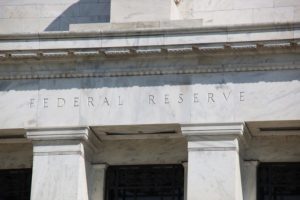Financial Oversight: We’re Still Waiting, Mr. President
We have a “regulation czar,” but no new regulations. It seems we can expect little from those with a track record of enabling bad policies.
Even if President Barack Obama doesn’t deliver the change he promised, at least he could restore basic oversight in key financial areas.
The need was highlighted by a story out of Cleveland last week. On Friday, Federal Deposit Insurance Corp. regulators seized the AmTrust Bank, the fourth-largest U.S. bank or savings institution to fail in 2009. The AmTrust debacle — the FDIC had dutifully guaranteed the bank’s deposits at a cost of more than $2 billion — vividly reflects the Obama administration’s steadfast commitment to the status quo.
Founded in 1889 as the Ohio Savings Bank, the company eventually morphed into a prominent player in northeastern Ohio, along with the National City Bank, which was seized by the FDIC a few months before the action against AmTrust.
During the wild speculative days of the late 1980s and the 1990s, and as banking regulations were overthrown, AmTrust expanded beyond its Ohio settings into southeastern Florida and Arizona, which proved fertile grounds for selling dubious mortgages and other investments.
Regulators periodically questioned some AmTrust practices, but apparently the bank had enough political influence during the Bush administration to keep the overseers at bay. On Dec. 5 The Wall Street Journal reported that the FDIC had been poised to seize the bank week earlier. After the FDIC finally acted, the New York Community Bancorp bought AmTrust at a much lower price than it would have fetched a year earlier, when the feds already recognized the bank’s precarious status.
AmTrust joins the legions of banks that abandoned any notion of prudence, once the financial community’s First Commandment. The bank’s troubles stemmed from ill-considered gambles in the housing market. It ventured into new geographic markets, offered aggressive mortgage and construction lending and racked up mind-numbing losses in derivatives that dominated its unbalanced sheets.
AmTrust did not receive funds from the Troubled Assets Relief Program (TARP) in 2008 or 2009. Without assistance such as its larger rivals received, AmTrust could not extricate itself from a mountain of bad debts. It apparently was not too big to fail.
President Obama and his advisers now have had more than a year since the election to devise programs needed to prevent another financial meltdown. The buccaneers of the financial community simply remain free to restore the disaster from which they were rescued with taxpayers’ money.
We have a “regulation czar,” but so far we have no new regulations. Treasury Secretary Timothy Geithner and the White House’s chief economic adviser, Larry Summers, have proposed some new laws, but we can expect little from those with a track record of enabling the bad policies and actions of the past three decades.
Senate and House bills offer a modicum of new regulation, but the legislative measures are floundering, damned for proposing too much or not proposing enough. Restoring the government regulation that both enabled and watched over the nation’s prosperity since 1945 appears as remote as gaining meaningful health care reform.
How do you achieve regulation when the leading players are the recipients of campaign backing from those they are supposed to regulate? Sens. Max Baucus, Christopher Dodd, Charles Grassley and Richard Shelby, the chairs and ranking committee members charged with effecting such reforms, rank among the top recipients of campaign contributions from those they are supposed to regulate. Surely, some bad joke is being played on us.
President Harry Truman, in his famous 1948 campaign, never hesitated to strike a partisan chord; appeasing opponents was not his style. He lit into the 80th Congress, his favorite adversary, saying that “the biggest lobby in the history of the country was at work [in that Congress] and they accomplished their purpose, they did.” You could not, he continued, expect Republicans to “come out in the open” and acknowledge their masters. “You’d take them out and hang them if they did.”
Today’s Democrats, as well as Republicans, openly serve their campaign paymasters, whether in the financial industry or the health industry, and Obama is no Harry Truman when it comes to taking on Congress and special interests. Change has left the room.
Stanley Kutler is the author of “The Wars of Watergate” and other writings.
Your support matters…Independent journalism is under threat and overshadowed by heavily funded mainstream media.
You can help level the playing field. Become a member.
Your tax-deductible contribution keeps us digging beneath the headlines to give you thought-provoking, investigative reporting and analysis that unearths what's really happening- without compromise.
Give today to support our courageous, independent journalists.






You need to be a supporter to comment.
There are currently no responses to this article.
Be the first to respond.